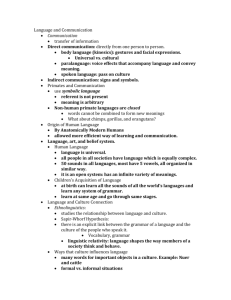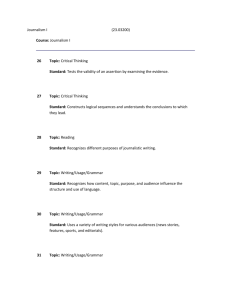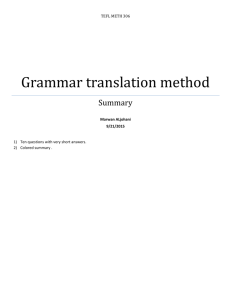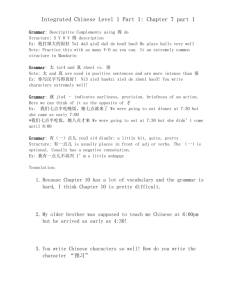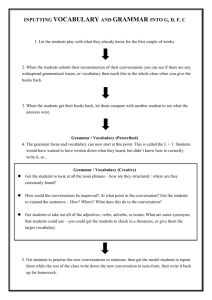Reading Images The Grammar of Visual Design by
advertisement
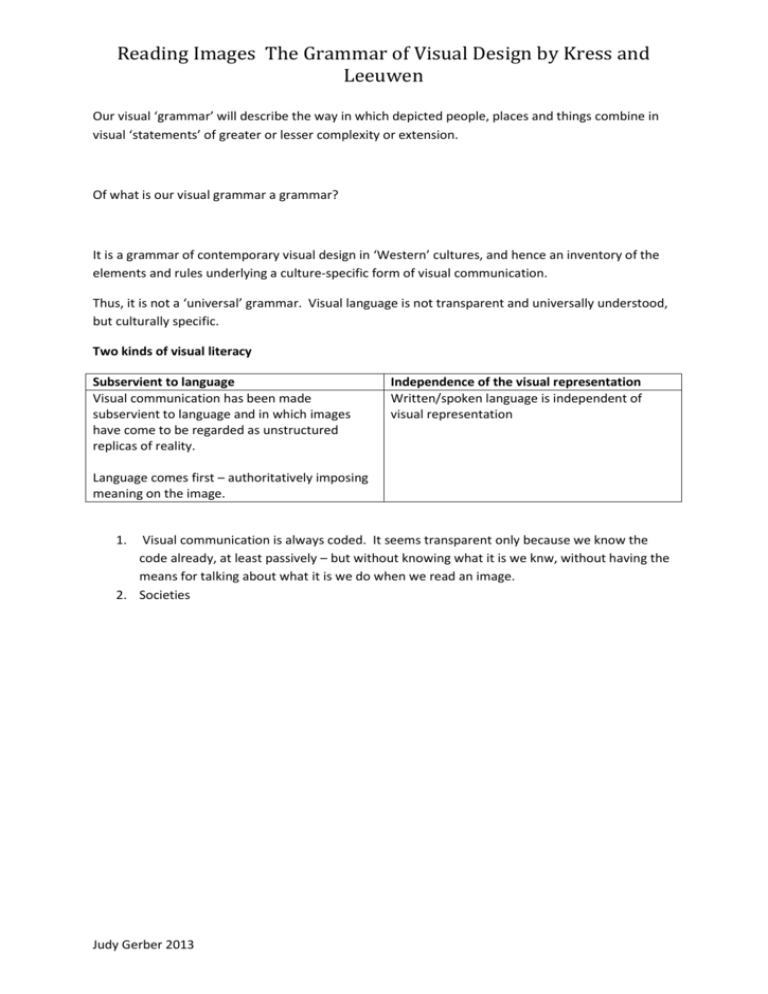
Reading Images The Grammar of Visual Design by Kress and Leeuwen Our visual ‘grammar’ will describe the way in which depicted people, places and things combine in visual ‘statements’ of greater or lesser complexity or extension. Of what is our visual grammar a grammar? It is a grammar of contemporary visual design in ‘Western’ cultures, and hence an inventory of the elements and rules underlying a culture-specific form of visual communication. Thus, it is not a ‘universal’ grammar. Visual language is not transparent and universally understood, but culturally specific. Two kinds of visual literacy Subservient to language Visual communication has been made subservient to language and in which images have come to be regarded as unstructured replicas of reality. Independence of the visual representation Written/spoken language is independent of visual representation Language comes first – authoritatively imposing meaning on the image. 1. Visual communication is always coded. It seems transparent only because we know the code already, at least passively – but without knowing what it is we knw, without having the means for talking about what it is we do when we read an image. 2. Societies Judy Gerber 2013




